Robot Salesmen
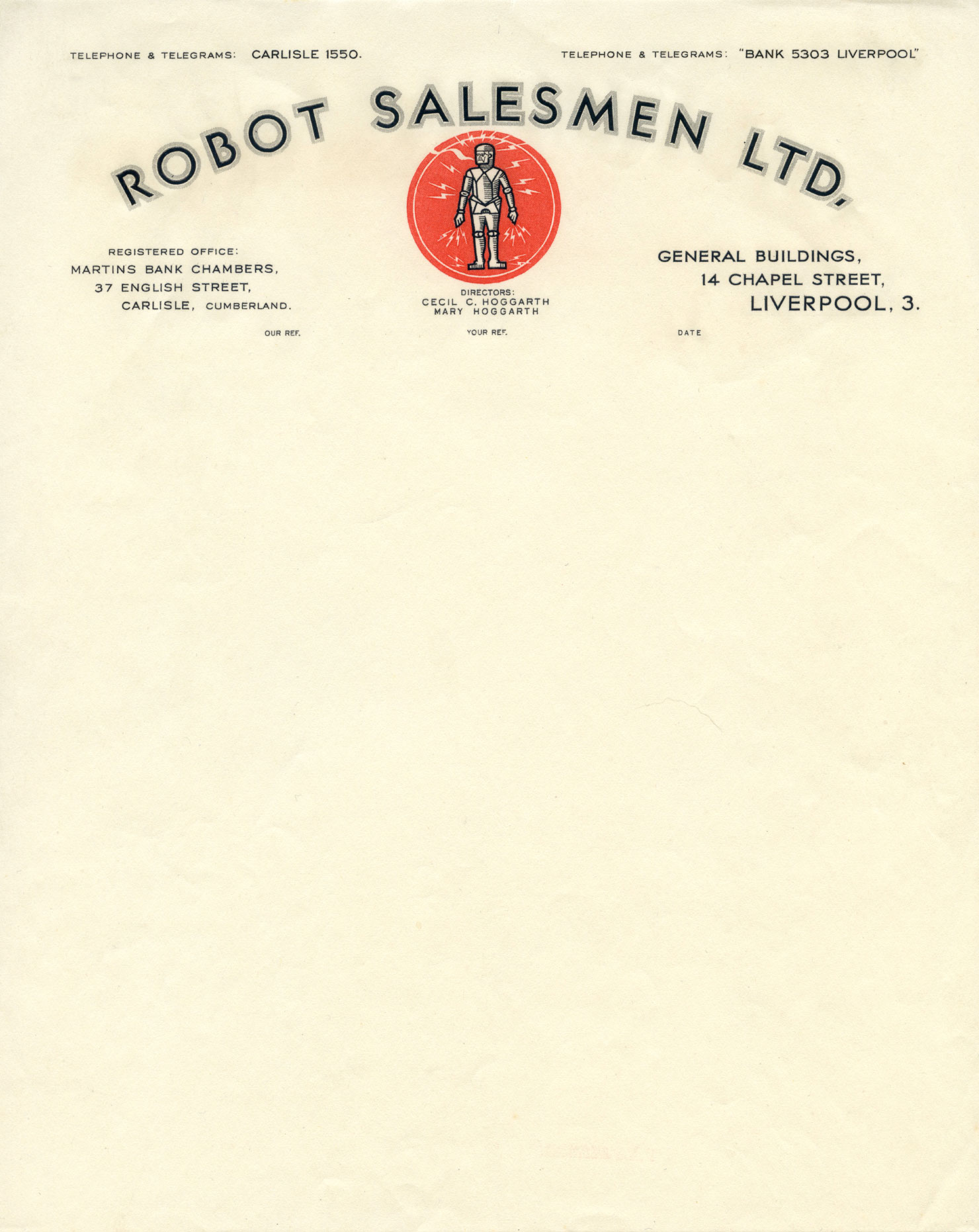
Way back in the mists of time – well, February 2007 – I posted on here about having picked up some sheets of unused letterhead from an Ephemera Society Fair. Amongst them was this beauty, from Robot Salesmen Ltd. Here’s what I wrote at the time:
“The Robot Salesmen one is just fantastic. The name alone is genius. The logo though; it’s a work of art – he looks like some kind of psychotically demented robot-knight hybrid, ready to destroy the world. We’d love to know what this company actually did. And, though you can’t see this from the scan, the whole thing is printed thermographically, so the ink is shiny and stands slightly proud from the paper. It’s the future, man.”
As is the way of the internet, it got posted around a fair bit, making it onto Letterheady, Kottke, and then on to various Pinterest pages and Tumblrs as they came along.
Recently a chap called Daniel got in touch to ask about the letterhead, and to see if I still had it. I did a bit of digging around, and found it, so I’ve scanned it again, this time at a slightly more useful resolution. If you’d like a copy, go grab it here.
Here’s a closer look at the Robot:
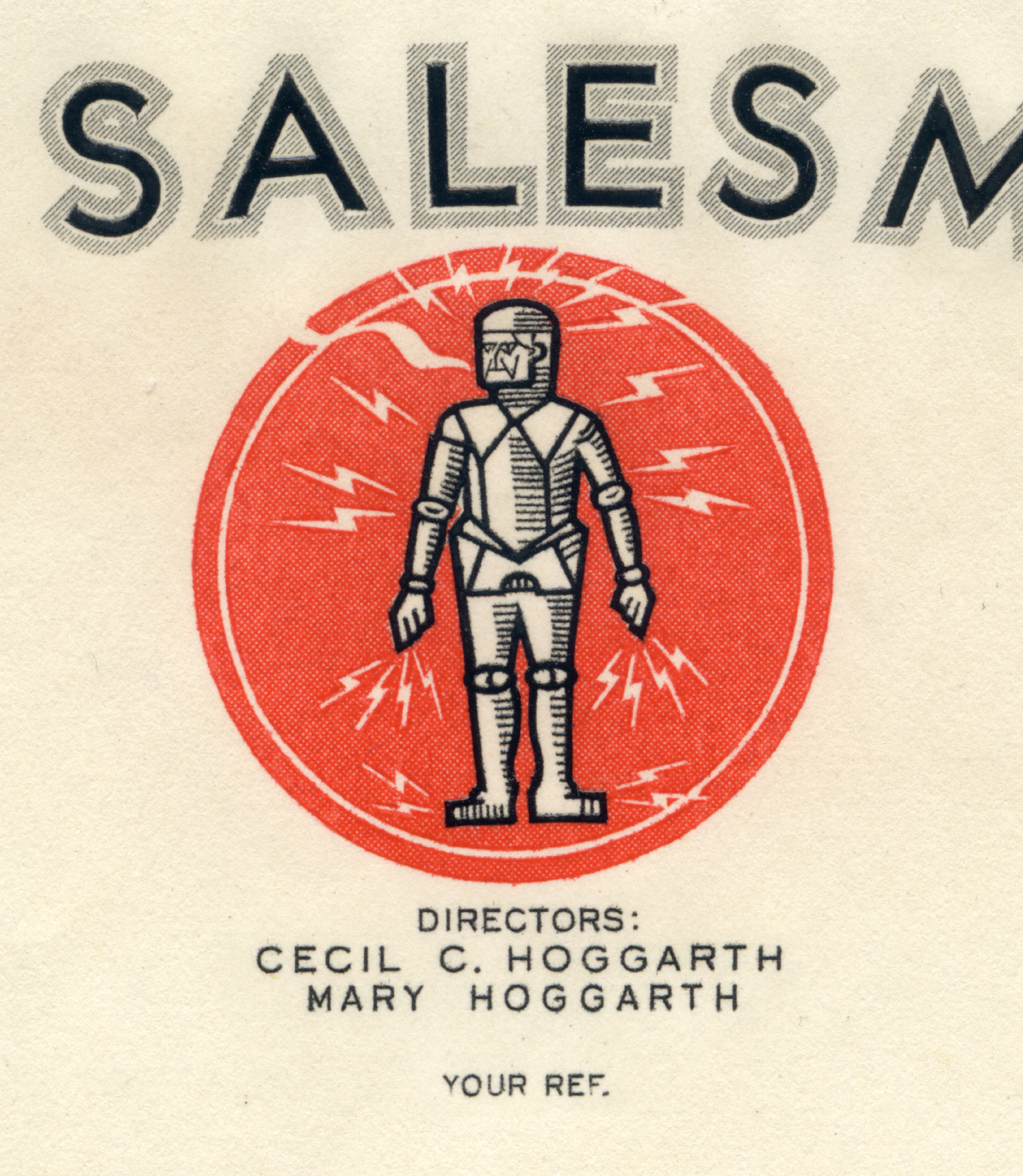
He looks like a happier chap than I originally thought.
Daniel and I had emailed back and forth about what the company might have been. I did a bit more digging. First up, the main address is General Buildings, 14 Chapel Street, Liverpool 3. Here’s what’s there now:
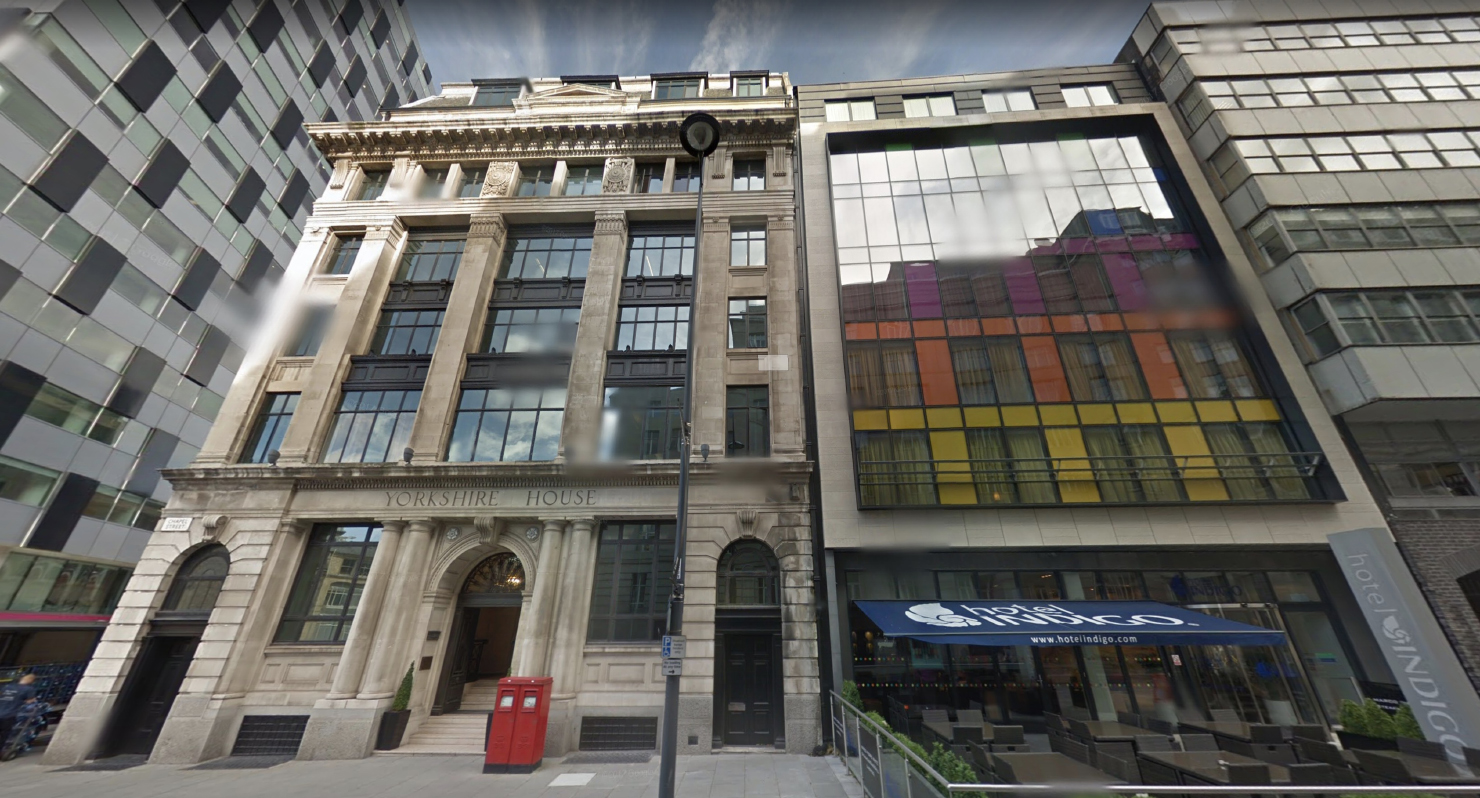
Yorkshire House, on the left, is No.18 Chapel Street, and was built in 1926 as the headquarters of the Yorkshire Building Society. The building next door, currently Hotel Indigo, is No.10 Chapel Street. So it’s possible that No.14 has been lost and replaced, or perhaps No.18 covered a few street numbers. (Other businesses registered at the address include The Atlantic and Eastern Steamship Co., and John Wilfred Fogg, a chartered accountant.)
What of the two Robot Salesmen company directors though, Cecil C. Hoggarth and Mary Hoggarth? Well Mary’s maiden name was Long, and she was born in December 1908, and married Cecil in September 1931, in the Parish of Carlisle.
And as you can also see on the letterhead, Carlisle is where their company was registered, at Martins Bank Chambers, 37 English Street. Which looks like this now:
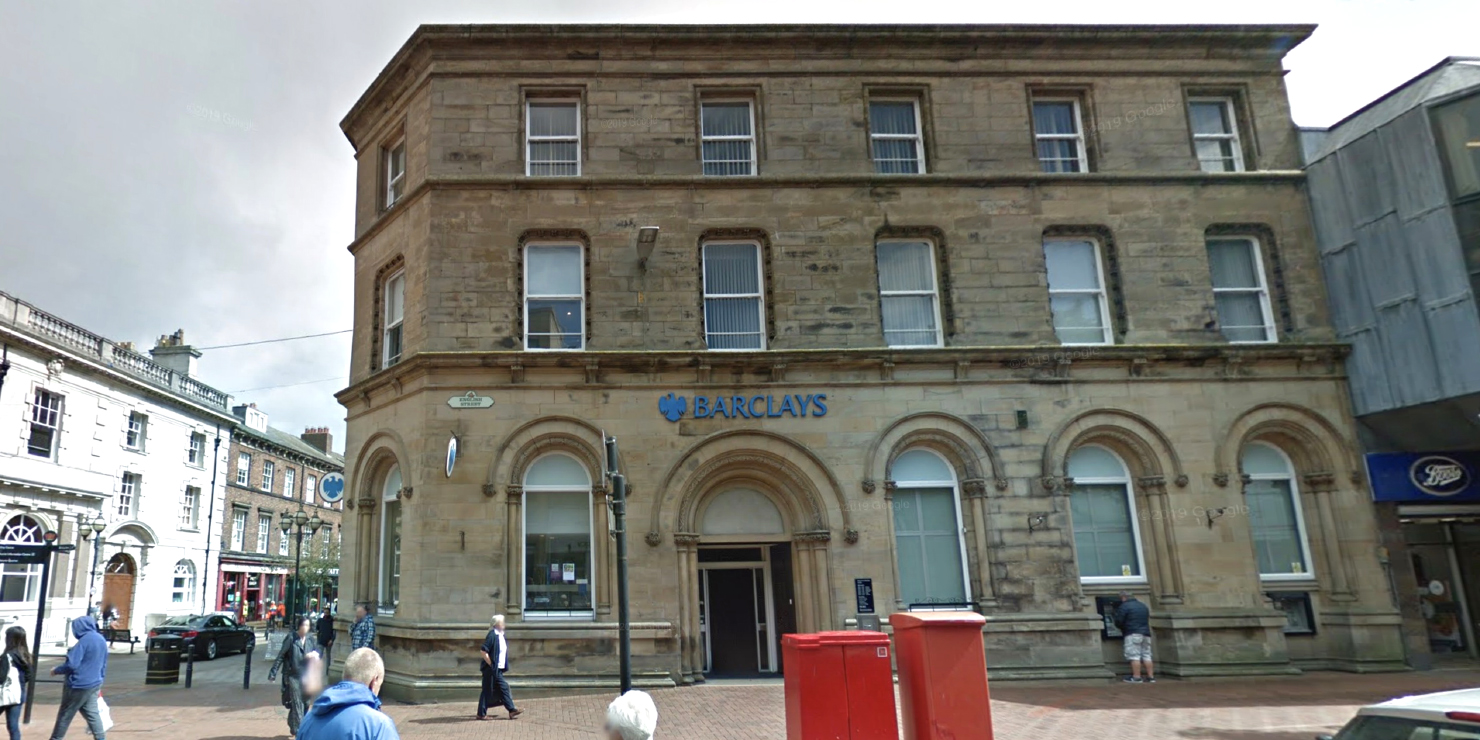
In 1911 the building was a Bank of Liverpool branch, before becoming a Bank of Liverpool and Martins in 1918, and then a Martins Bank in 1928. It stayed that way until 1969, when Martins Bank became part of Barclays. There’s a whole website dedicated to the Martins Bank archives, and you can do a search there for the Carlisle English Street branch. Here’s how it looked back in the day:
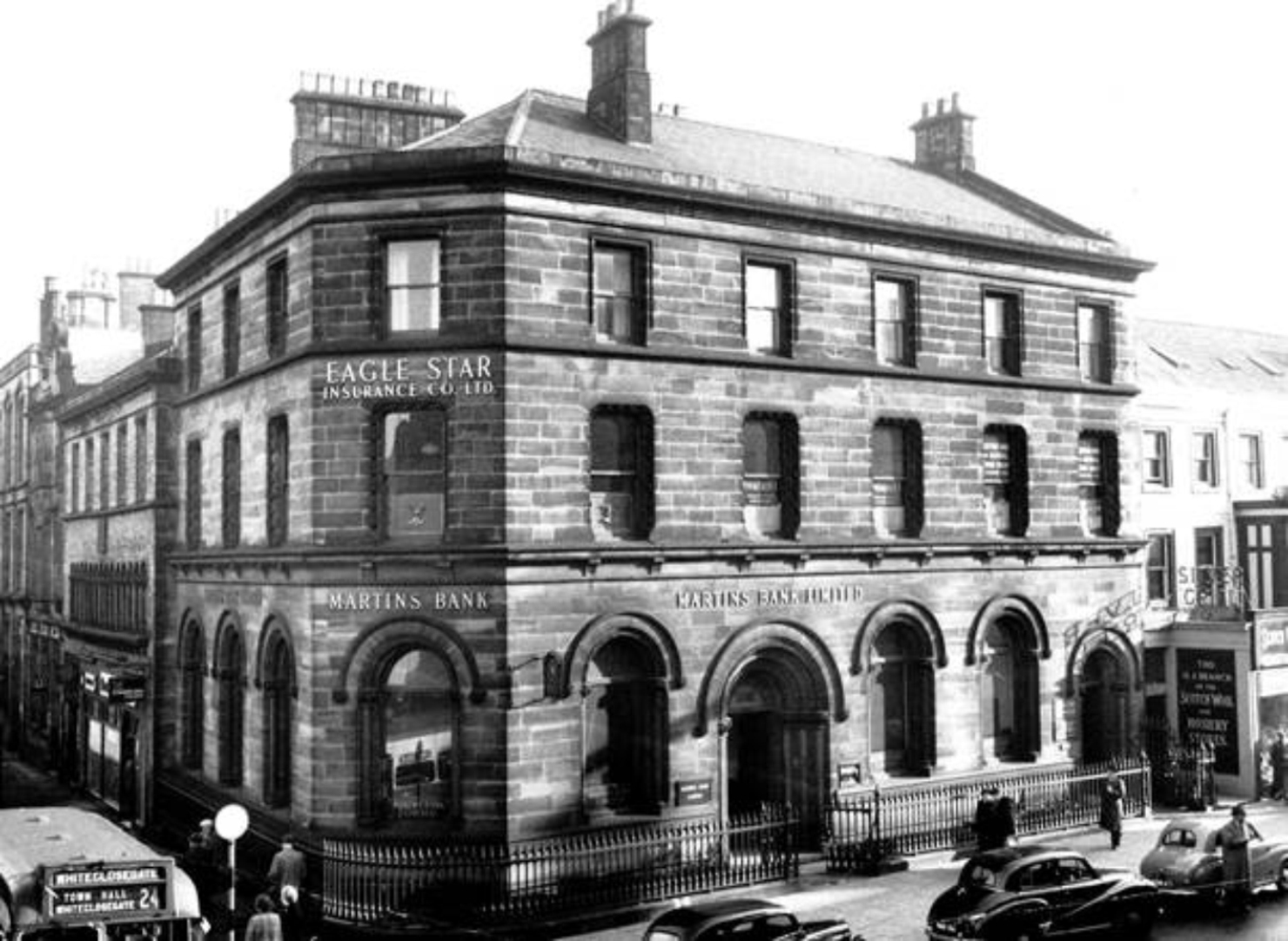
I also found this Martins Bank book from a Carlisle branch customer, Mrs Elizabeth Telford, for sale on ebay. Perhaps she once queued up at the bank next to Mr & Mrs Hoggarth?
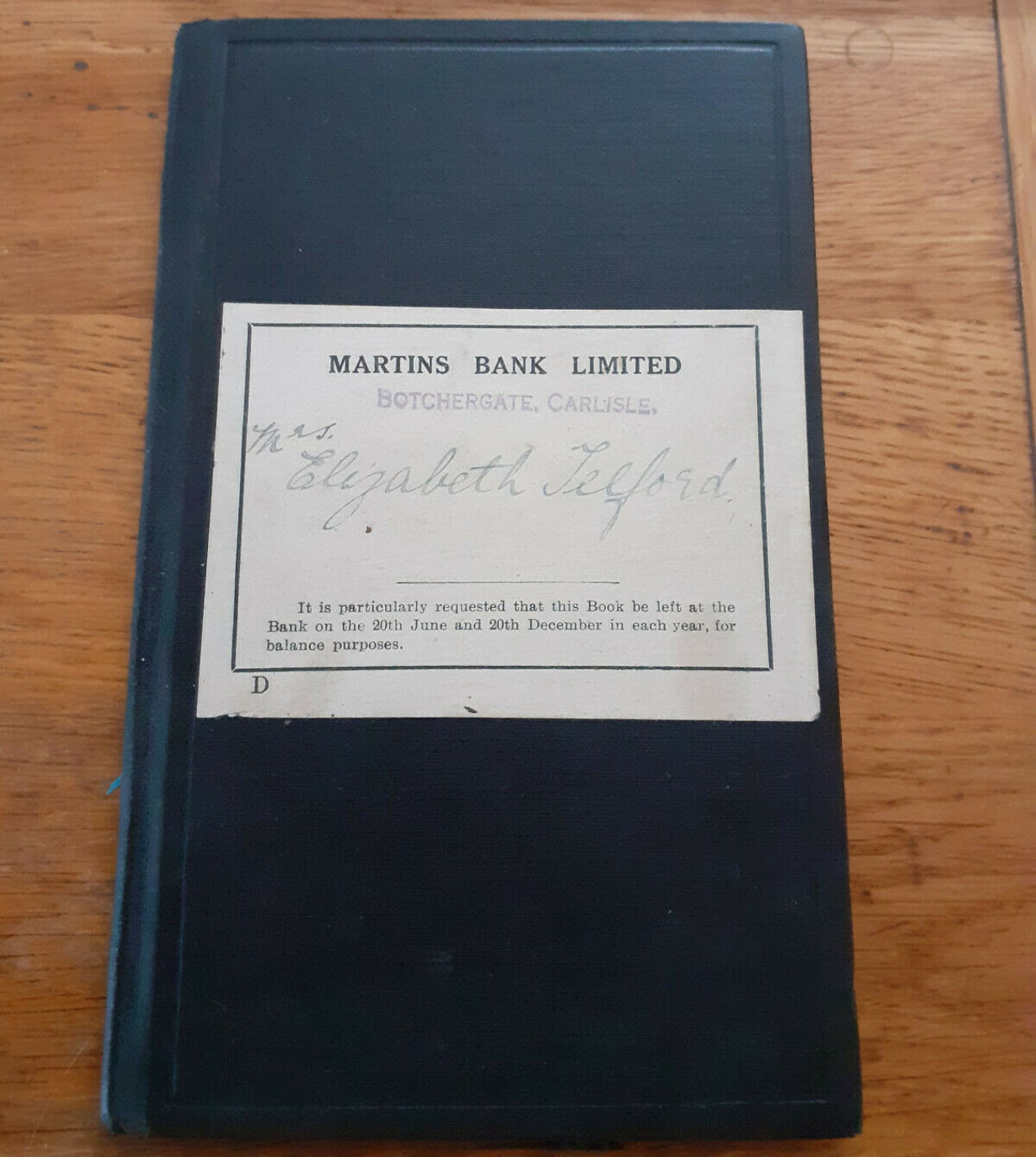
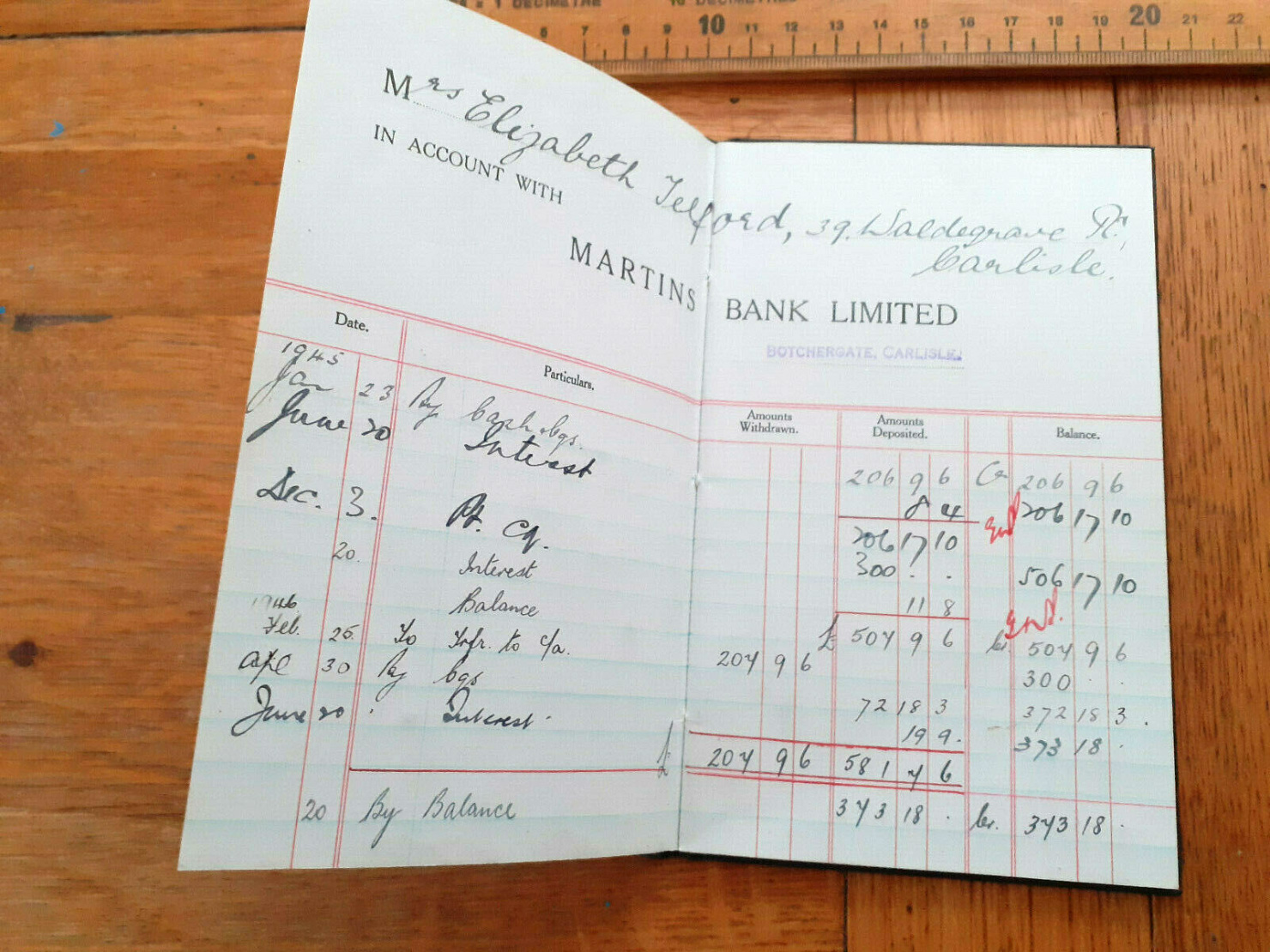
So we have a couple in Carlisle who registered their new company at the local bank, and then set up offices 124 miles south, in Liverpool.
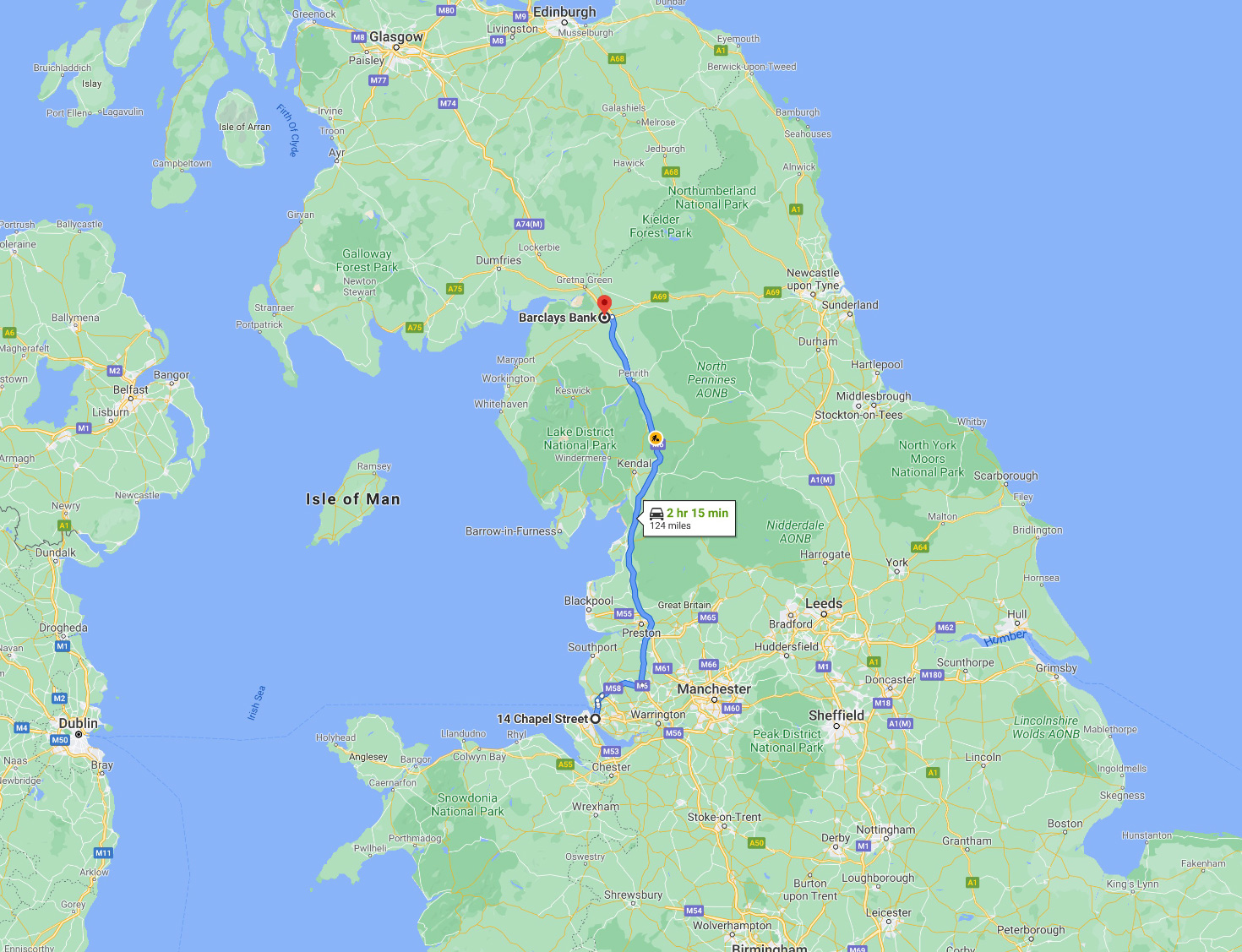
But what on earth did Robot Salesmen Ltd. actually do?
Well, digging a bit deeper over on the British Newspaper Archive, I found the term ‘Robot Salesmen’ used a few times. Here’s an example from the Yorkshire Evening Post, from Friday August 5 1932, in the piece at the top titled ‘Robot Salesmen that Fail’. See below for a transcript.
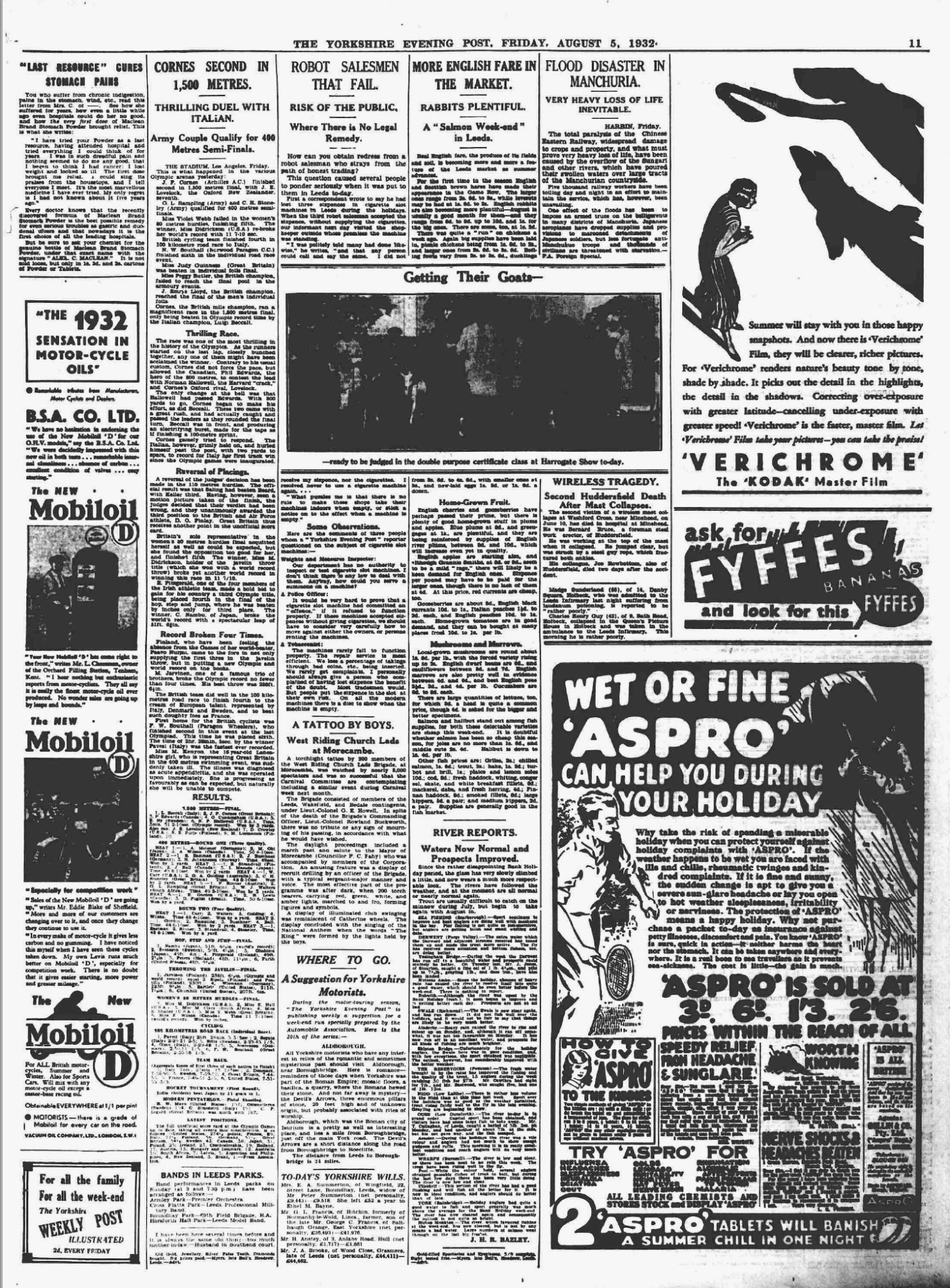
ROBOT SALESMEN THAT FAIL.
RISK OF THE PUBLIC,
Where There is No Legal Remedy.How can you obtain redress from a robot salesman who strays from the path of honest trading?
This question caused several people to ponder seriously when it was put to them in Leeds to-day.
First a correspondent wrote to say he had lost three sixpences in cigarette slot machines in Leeds during the holidays. When the third robot salesman accepted the sixpence, without supplying the cigarettes, our informant next day visited the shopkeeper outside whose premises the machine was standing.
“I was politely told many had done likewise,” he writes, “and that any person could call and say the same. I did not receive my sixpence, nor the cigarettes. I resolved never to use a cigarette machine again… “What puzzles me is that there is no rule to make these shops take their machine indoors when empty, or stick a notice on to the effect when a machine is empty.”
Some Observations
Here are some comments of three people whom a “Yorkshire Evening Post” reporter questioned on the subject of slot machines:—Weights and Measures Inspector:
Our department has no authority to inspect or test cigarette slot machines. I don’t think there is any law to deal with them. Anyway, how could you serve a summons on a machine?A Police Officer:
It would be very hard to prove that a cigarette slot machine had committed an “offence” if it refused to function properly. If these machines accepted sixpences without giving cigarettes, we should have to consider very carefully how to move against either the owners, or persons renting the machines.A Tobacconist:
The machines rarely fail to function properly. The repair service is most efficient. We lose a percentage of takings through bad coins, etc., being inserted. We rarely get complaints. I personally should always give a person who complained of having lost sixpence the benefit of the doubt. Most tradesmen would. But people put the sixpence in the slot at their own risk. On all the modern machines there is a disc to show when the machine is empty.
So, it seems that the Hoggarth’s were selling vending machines! What a brilliant term for them.
Perhaps they were selling Wild Woodbine cigarette machines like this:
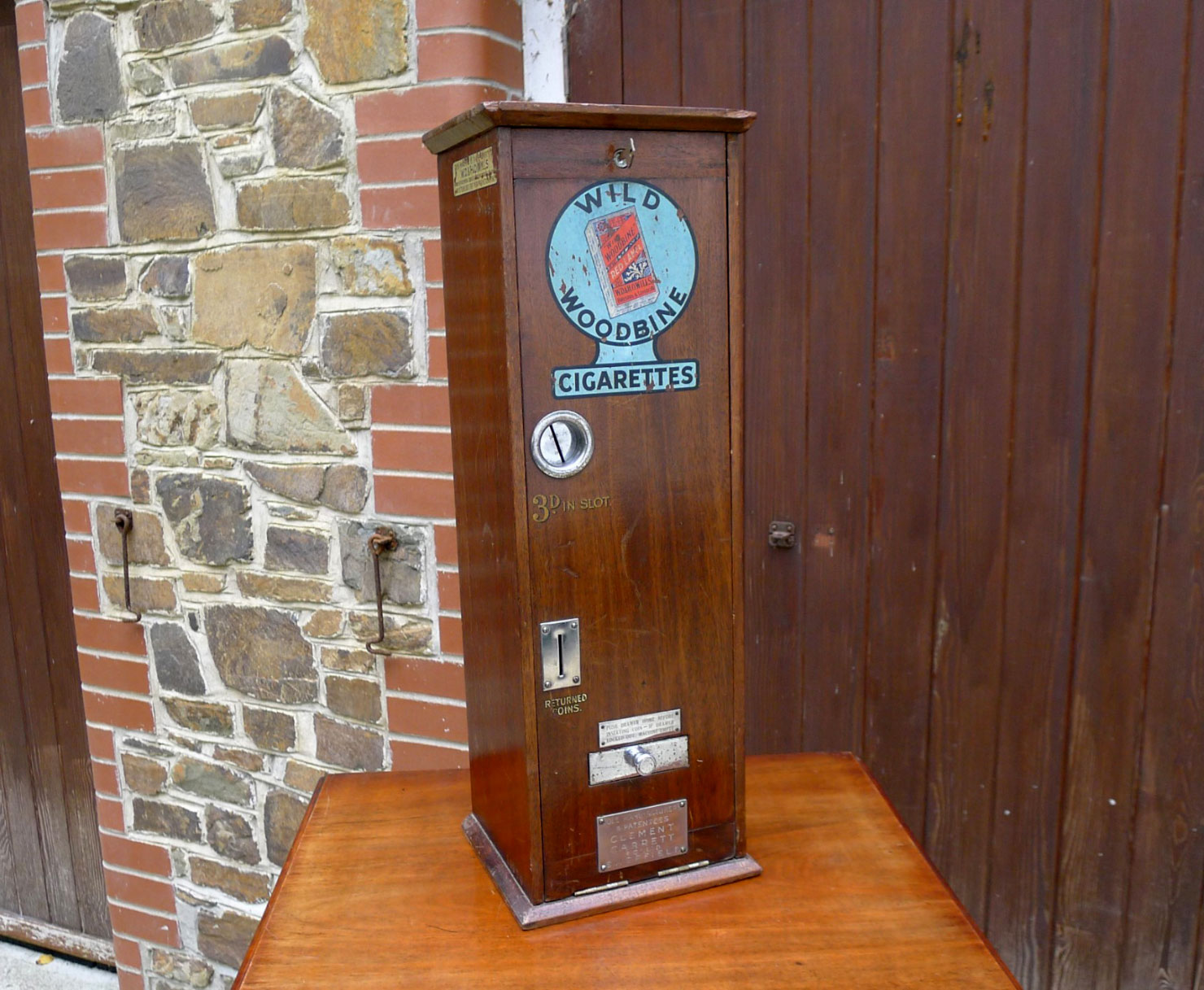
And perhaps that explains why there’s a wisp of smoke coming out of our robot’s mouth?

Or perhaps that’s wishful thinking – it might just have been a cold day. Of course, the Hoggarth’s may well have been selling some other sort of vending machine – that mystery remains to be uncovered. In the meantime, you can see lots of examples of vending machines over at the Penny Machines archive.
Anyway, for now, it feels great to have unearthed a bit more of the story of the Robot Salesmen.